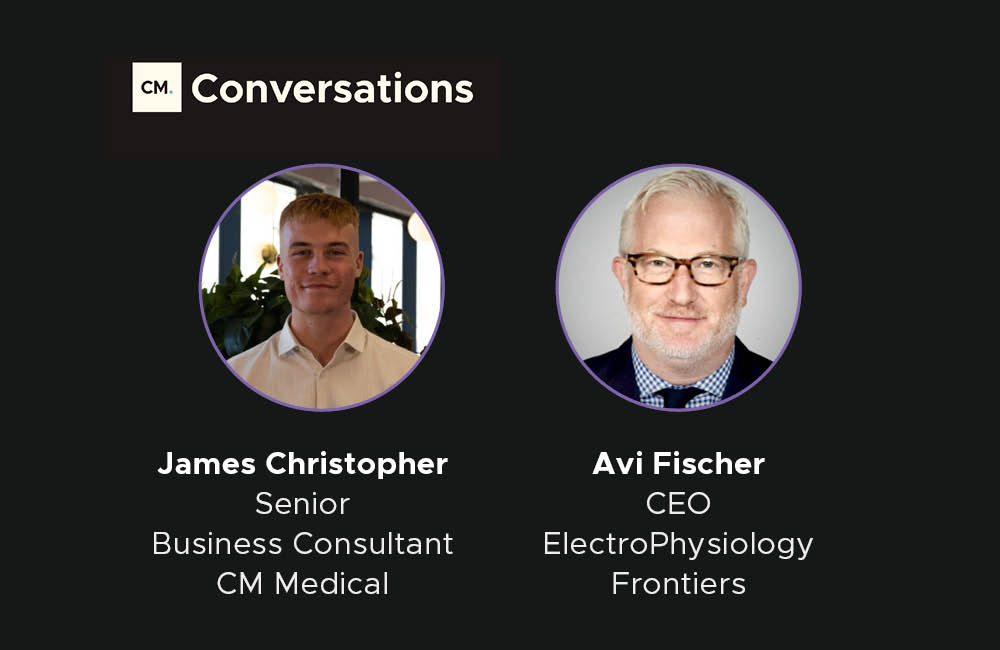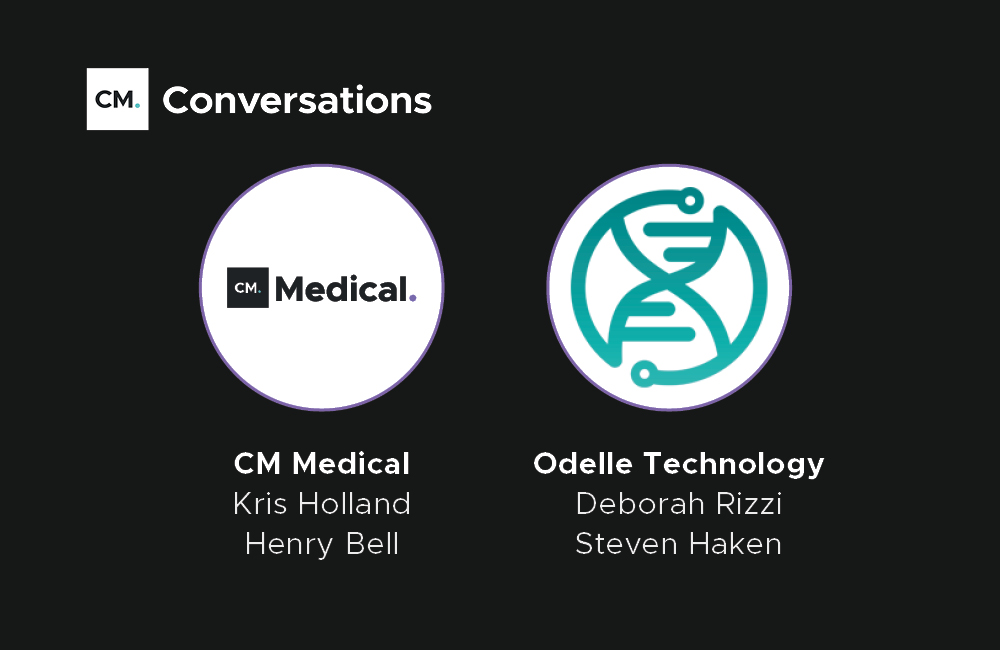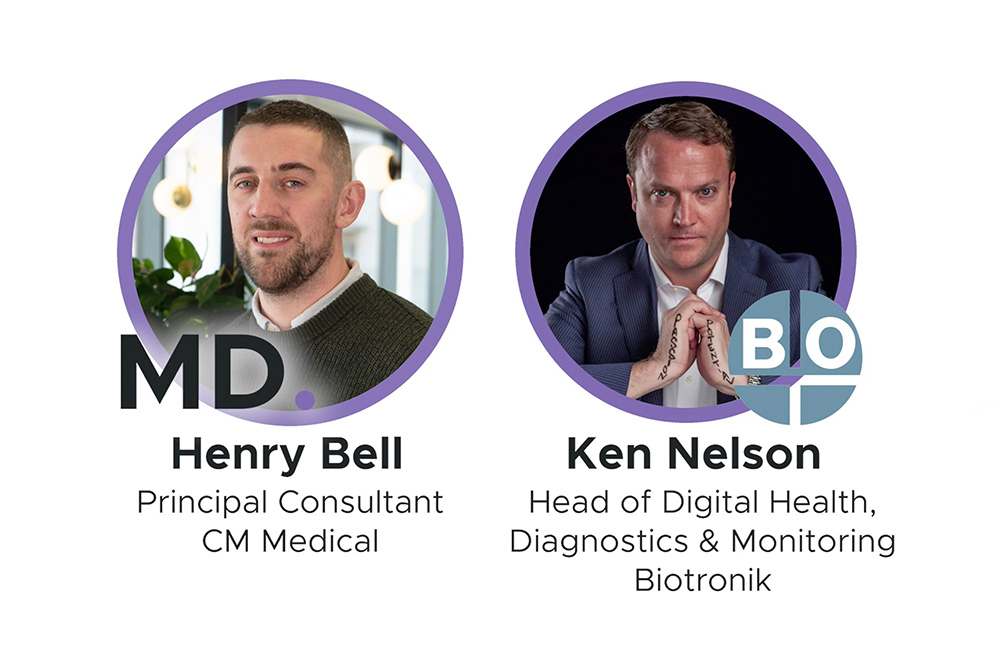.png)
.png)
Why CRM is Still the Beating Heart of Cardiovascular Treatment.
Heart related illnesses affect millions of lives around the world, with cases expected to double in the next 15 years.
It’s a big issue that the global healthcare community face.
While alternatives like medication and cardiac ablation – a procedure that uses heat energy to modify the tissues in your heart – have emerged, pacemakers remain one of the main forms of Cardiac Rhythm Management (CRM).
Regulating the heart’s rhythm, pacemakers can eliminate the symptoms of bradycardia, meaning individuals feel more energised and don’t suffer from a shortness of breath. Although they don’t prevent or stop heart disease, these benefits can be lifechanging for patients.
From talking to experts in my network, many have pointed out a rising misconception. Some individuals among of the healthcare community believe that we’ve reached the ‘best we can get’ with CRM devices and it is a very commoditised product.
This is understandable when you make comparisons with other overcrowded markets like diabetes management, where innovations are pouring out. Add to that, the prolonged success of the pacemaker industry and it might not seem quite so disruptive.
However, innovation is still rife. A surge of new, advanced CRM devices is just around the corner...
As recent as November 2019, the National Institutes of Health (NIH) funded $1m to help develop advanced microchip sensors for a new class of heart pacemakers. This funding is part of a four-year $2.4m grant to a multi-institution research team led by computer engineering associate professor, Aydin Babakhani.
Babakhani and his fellow researchers have created an ultra-energy-efficient microchip, that combines powerful sensors, stimulators that send out signals, as well as, energy-harvesting and delivery capabilities.
This technology could create a revolutionary brand of pacemakers and defibrillators, small enough to fit inside a vein.
The new design works by sending low-energy, electromagnetic pacing pulses to the heart from where they’re implanted. These new pacemakers, developed with doctors and engineers at the Texas Heart Institute and Rice University, will be wirelessly powered and will not require batteries.
Industry giants are crucial to pacemaker innovation too... most notably, Medtronic.
It’s hardly surprising that Medtronic - which was started by Earl Bakken with a single pacemaker back in 1957 - continue to innovate in the CRM space.
Their Micra pacemaker is the smallest pacemaker ever made. It has a 99% implant success rate and 63% fewer major complications than traditional pacemakers, meaning it minimalizes cases of patient distress, reduces patient treatment time and, in turn, healthcare costs.
Medtronic aren’t finished there.
Following a positive study, they’re also developing a new leadless pacemaker called the Micra AV. This is currently under FDA review.
It’s believed the Micra AV’s investigational algorithms in its Micra Transcatheter Pacing System (TPS) will significantly improve synchrony and cardiac function in patients with atrioventricular (AV) block - an impaired electrical conduction between the chambers of the heart.
Looking East, Chinese company, Microport, a well-established member of the CRM market, are also looking to extend the boundaries of cardiovascular disease management. Their Reply model is the world’s smallest dual-chamber pacemaker with no compromise on longevity, while their Reply 200 model also boasts sleep apnea monitoring capabilities.
Although pacemakers provide the solution for many, in one in 20 cases the operation to implant can be too challenging to even attempt. That’s where alternative innovation from the CRM family comes in.
ICDs can prevent sudden death in patients with known, sustained ventricular tachycardia or fibrillation. Studies have also shown their potential to prevent cardiac arrest in high-risk patients who haven't had but are at risk for life-threatening ventricular arrhythmias.
Boston Scientific’s Dynagen MINI ICD is this market’s sleekest device, designed for patient comfort. It’s up to 20% smaller and 24% thinner than most ICDs. It also includes the new EasyView header with colour coded lead ports, designed to improve implant efficiency.
While this is a popular device, Medtronic’s Ev-ICD, currently under development, is looking to become a challenging competitor.
Rather than having a lead placed on top of the sternum, the Ev-ICD’s lead would be placed underneath the sternum, in addition to having the ability to deliver bradycardia pacing and anti-tachycardia pacing. S-ICDs cannot provide this all-in-one solution. The Ev-ICD’s design is also smaller and longer lasting.
While CRT has been and continues to be an important area too, I’ll instead turn your attention to a new area generating a lot of excitement throughout my network: Cardiac Contractility Modulation (CCM).
Whereas CRM systems manage the pace of your heartbeats, CCM manages the strength of the contraction of your heart muscle to keep the pumping capacity at a healthy level.
Leading the way in this area, Impulse Dynamics have brought to market their Optimizer Smart System. This is a minimally invasive implantable device for patients experiencing symptoms of moderate to severe CHF - even after appropriate medical treatment.
The device operates by delivering precisely timed electric pulses called CCMTM (Cardiac Contractility Modulation) therapy. As a result, patients experience a higher quality of life through the reduction of CHF symptoms like shortness of breath and fatigue.
Working alongside a portable OMNI programmer, allows doctors to change the OPTIMIZER’s signal parameters according to individual patient needs.
The implantable pulse generator needs weekly recharging at home for about 40 to 60 minutes but is intended to work for 15 years.
So, innovation isn’t at a stand-still after all. There’s much more to come from this space which provides lifechanging solutions for millions of people every day. While new devices continue to keep us on our toes, the CCM market could be where the biggest surge of innovation comes from in the future decades.
Recommended.

The Future of Catheter Ablations with EP Frontiers CEO, Avi Fischer.
In this episode I talk to ex-physician gone start-up CEO, Avi Fischer, about the future of Catheter Ablations and how EP Frontiers is disrupting the industry. Click to listen.
.jpg)
Can PFA Revolutionise Cardiac Ablations?
With the limited data we have so far, PFA has proven to be safer than other ablation energies and to provide quicker recovery times. But is it ready to revolutionise cardiac ablations? To find out, I spoke to five leaders from start-ups in the space.

How to Take Your Medical Device to Market.
In this episode, I'm joined by Steven Haken and Deborah Rizzi from market access and reimbursement specialists Odelle Technology to discuss how to take a medical device to market.

How Much Value is in Your Data?
I caught up with the Head of Digital Health, Diagnostics & Monitoring at Biotronik, Ken Nelson, to talk about the increasing value of data within the space.
Comments.